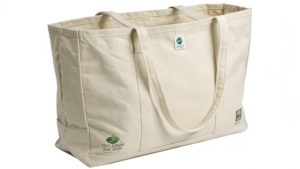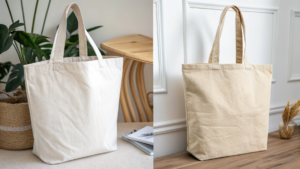Do reusable water bottles really make a difference?
I remember when reusable water bottles were just for hikers. Now, they are everywhere. This change shows how much we care about the planet and our health.
Reusable water bottles are more than just a trend; they are a big step towards a healthier planet and a healthier you. They cut down on plastic waste and often keep harmful chemicals out of your water, making them a smart daily choice.
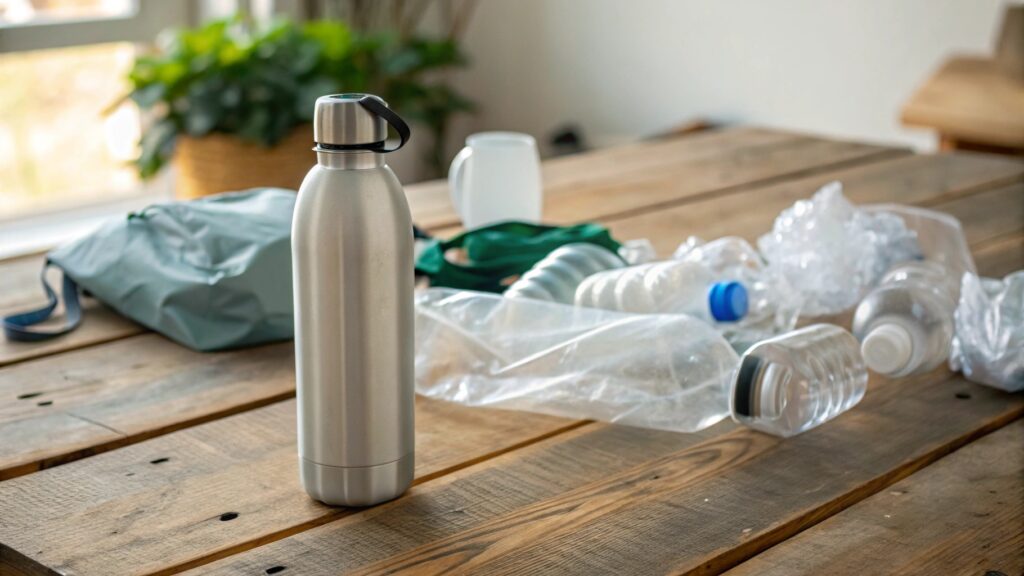
From my days in the printing factory, I saw a lot of waste. Now, I see how small changes, like using a reusable bottle, add up to a huge impact. It's about making conscious choices.
Are reusable water bottles healthy?
Do you ever worry about what's in your drinking water? Many people ask me if reusable bottles are truly safe for their health. It's a good question to consider.
Reusable water bottles are generally healthier than single-use plastic bottles. They reduce exposure to harmful chemicals like BPA, which can leach into water from disposable plastics, especially when exposed to heat or stored for long periods.
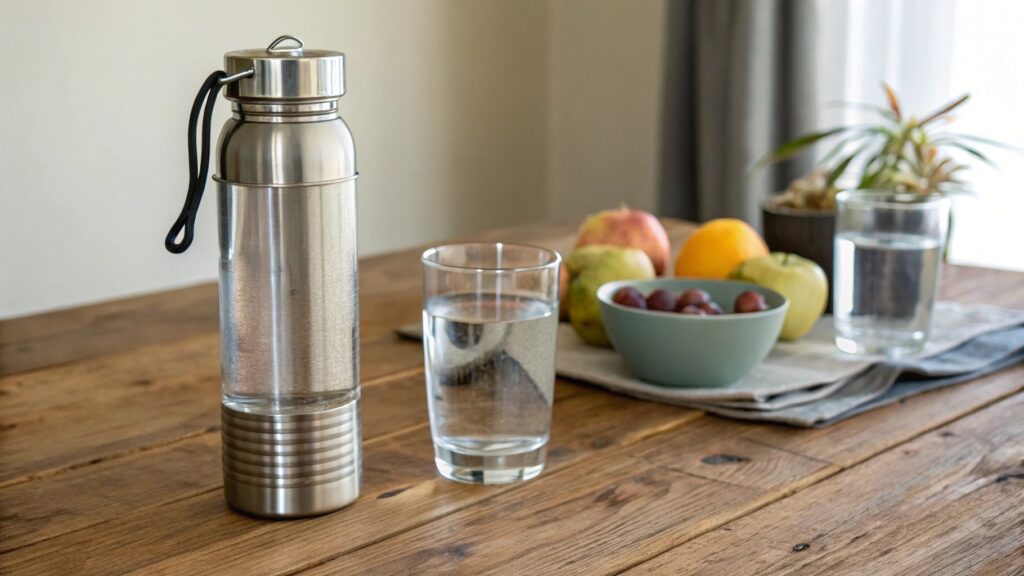
When I first learned about BPA1 in plastics, it changed my view on bottles. I realized that health is a big reason why people choose reusable options, not just saving the environment. It's a dual benefit.
Why do some plastic bottles pose health risks?
Many single-use plastic bottles contain chemicals that can seep into your water. I've learned that these chemicals, like BPA, can be harmful over time. This is especially true if the bottle gets hot or if you reuse a single-use bottle many times. I always advise my clients to look for "BPA-free" labels. This is a simple way to make a safer choice. It's about protecting yourself and your family. We need to be aware of what our bottles are made of. This helps us make better health choices every day.
| Chemical | Potential Health Concern | Why It Leaches |
|---|---|---|
| BPA (Bisphenol A) | Hormone disruption, reproductive issues. | Heat exposure, prolonged storage, repeated use. |
| Phthalates | Endocrine disruption, developmental issues. | UV light exposure, fatty or acidic liquids. |
| Antimony | Nausea, vomiting, diarrhea (in high doses). | Long storage time in PET bottles, especially in warm conditions. |
I once had a client who was very health-conscious. They only wanted stainless steel bottles2 for their team. They understood the risks of some plastics. This really showed me that health is a major driver for this trend. It's not just about what you drink, but what you drink it from. By choosing safer materials, we take an active step toward better health. It’s a simple change that can make a big difference over time. I always emphasize this when discussing bottle options.
Is it better to drink from glass or stainless steel?
Are you wondering which type of reusable bottle is best? Many people ask me if glass or stainless steel is the superior choice. Both have strong points, and it depends on your needs.
Both glass and stainless steel are excellent choices for reusable water bottles. Stainless steel offers durability and insulation, making it ideal for active lifestyles. Glass provides a pure taste and is easy to clean, appealing to those who prioritize purity.
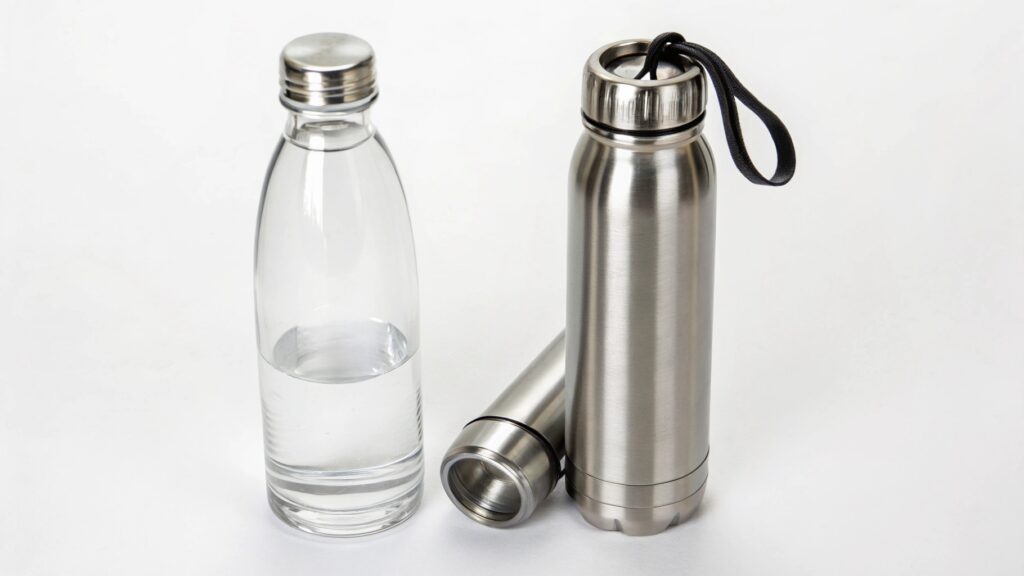
I've worked with both materials for corporate gifts. Each has its own appeal. Stainless steel is rugged, while glass feels premium. It comes down to what you value most in a bottle.
How do glass and stainless steel bottles compare?
When clients ask me about the best material, I explain the pros and cons of glass and stainless steel. Each has distinct advantages that suit different needs. Stainless steel is tough and keeps drinks cold or hot, which is great for active people. Glass, on the other hand, gives a pure taste and is very easy to clean. It also looks very sleek. I often tell people to think about how they will use the bottle daily. This helps them decide.
| Feature | Stainless Steel | Glass |
|---|---|---|
| Durability | Very high; resistant to dents and breaks. | Moderate; can break if dropped. |
| Taste Purity | Excellent; no flavor transfer. | Excellent; no flavor transfer, very pure taste. |
| Insulation | Often insulated to keep drinks hot/cold. | Poor; no insulation unless double-walled. |
| Weight | Moderate to heavy. | Heavier than stainless steel. |
| Cleaning | Easy to clean, but can be hard to see inside. | Very easy to clean, can see if it's dirty. |
| Chemical Leaching | None; inert material. | None; inert material. |
| Price | Can be higher due to insulation. | Generally more affordable than insulated stainless steel. |
I once helped a gym client pick stainless steel bottles. They loved the durability and insulation for workouts. For a spa, we chose elegant glass bottles. They wanted a premium feel and pure taste. These choices highlight how important the right material is for the user's experience. It's not just about a bottle; it's about matching the bottle to the lifestyle. I believe in giving options that truly fit the purpose.
What is the best kind of reusable water bottle?
Are you feeling overwhelmed by all the choices for reusable water bottles? Many options exist, and it can be hard to pick just one. I hear this question often from my customers.
The "best" reusable water bottle depends on your specific needs, like durability, insulation, ease of cleaning, and material preference. Look for BPA-free materials like stainless steel or glass for health, and consider features that fit your lifestyle.
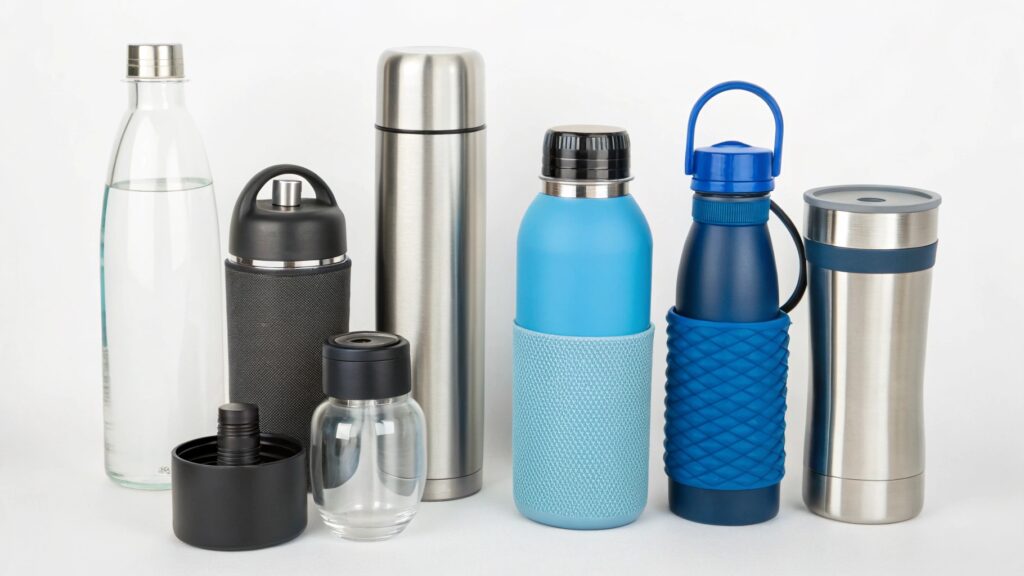
From my experience, there is no single "best" bottle for everyone. It's always about finding the right fit. It's like choosing the right tool for a job – it has to meet your specific requirements.
How do you choose the perfect reusable bottle for you?
Choosing the best reusable water bottle means thinking about your daily life. I always tell my clients to consider their habits first. Do you need a bottle for the gym? Or for your office desk? Or maybe for travel? The answers guide the choice. We look at material, size, and special features. This helps narrow down the options to find the perfect match. It's about making a practical decision that supports your lifestyle.
| Factor | Consideration | Why it Matters |
|---|---|---|
| Material | Stainless steel, glass, or BPA-free plastic. | Affects durability, taste, insulation, and health. |
| Capacity | How much water you need daily. | Impacts how often you need to refill and portability. |
| Lid Type | Screw top, straw, flip-top, or wide mouth. | Affects ease of drinking, cleaning, and leak-proofing. |
| Insulation | Double-walled for hot/cold drinks. | Keeps beverages at desired temperature for longer. |
| Portability | Weight, shape, and handle/loop. | How easy it is to carry during daily activities. |
| Ease of Cleaning | Wide opening, dishwasher safe parts. | Ensures hygiene and prevents mold/bacteria growth. |
| Aesthetics | Color, design, and personal style. | Makes you more likely to use and enjoy the bottle. |
I once helped a busy marketing manager choose a bottle. She needed one that was light, leak-proof, and kept her coffee hot. We found a slim, insulated stainless steel bottle with a simple flip-top lid. She loved it. It fit her busy schedule perfectly. This shows that the best bottle is the one that fits your needs. It's about finding that perfect balance of features. I always aim to make this process easy for my clients.
Conclusion
Reusable water bottles are a smart choice for health and planet. They are better than single-use plastics. You should choose a bottle that fits your life and needs.



